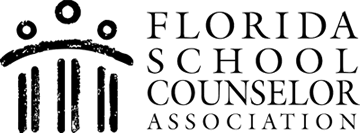The Florida School Counselor Association (FSCA) acknowledges the complexity of the role of a school counselor navigating a diverse political climate that can often contradict the recommendations outlined in the American School Counselor Association’s (ASCA) Ethical Standards. Because the mission of FSCA is to support school counselors in the state as they work to positively impact students’ academic, college/career, resiliency, mental wellness, and life skills, it is necessary to provide guidance and resources through a non-partisan lens focused on ethical decision-making and professionalism.
Ethical Responsibilities
The ASCA Ethical Standards define one of the primary responsibilities of a school counselor as supporting student development. This is accomplished when a school counselor ensures students are treated with dignity and respect as unique individuals, fosters and affirms all students and their identity, works to eliminate systemic barriers or biases that impede student development, recognizes the vital role and rights of parents/guardians and families, respects students’ and families values, beliefs, and background, maintains knowledge of local, state, and federal laws, as well as school and district policies and procedures that affect students and families, advocates for equitable, anti-oppressive and anti-bias policies and procedures, systems and practices, and provides effective, evidence-based and culturally sustaining interventions (ASCA, 2022).
School counselors serve legally and ethically. To this end, school counselors must always maintain knowledge and deliver services in accordance with local, state, and federal laws, as well as school and district policies and procedures. When situations arise that may be legally ambiguous, a school counselor should always first consult the district supervisor(s) for guidance and may refer to the ASCA Ethical Decision-Making Model to guide discussion and consultation.
In addition, school counselors also have a responsibility to cultivate a caring, rigorous, and supportive school community that promotes the academic success and well-being of all students. Likewise, counselors should assist all students with developing a path to effectively prepare for secondary and postsecondary educational and employment opportunities; and provide all students with opportunities for academic enrichment (6A-5.079, F.A.C., Florida School Counseling Standards). FSCA recommends utilizing position statements released by ASCA to help advocate at the district and state levels. School counselors are also responsible for identifying and advocating for resources needed to optimize opportunities for diverse student populations. It is necessary for students to have access to diverse educational materials, attain college and career goals, and develop life skills and resiliency. The resources listed below can be used to educate and advocate for the needs of students in Florida.
Collectively, educators, parents, families, and communities care for and want the very best for students. Yet, challenges to education are always abound, with education influenced by societal, economical, political, and cultural factors. However, with challenges come opportunities.
For over a century, school counseling has proven to be a notable profession, and a difference maker for students and families. Data and real life examples continue to showcase the worth of a school counselor. However, history has taught us that the cycle of outside factors never has, nor will they, stop at the school-house door. School counselors may utilize these opportunities to inform and educate stakeholders of the worth and value of the school counseling profession.
Resources
ASCA Position Statements
- The School Counselor and Anti-Racist Practices: The School Counselor and Anti-Racist Practices – American School Counselor Association (ASCA)
- The School Counselor and Cultural Diversity: The School Counselor and Cultural Diversity – American School Counselor Association (ASCA)
- The School Counselor and Equity for All Students: The School Counselor and Equity for All Students – American School Counselor Association (ASCA)
- The School Counselor and LGBTQ+ Youth: The School Counselor and LGBTQ+ Youth – American School Counselor Association (ASCA)
Advocacy
Diverse Educational Materials
- Graduation Requirements (fldoe.org)
- Career & Technical Education (fldoe.org)
- High School Acceleration Programs (fldoe.org)
College and Career
- Florida College System (fldoe.org)
- SAPBFMAIN – Florida Student Scholarship & Grant Programs (floridastudentfinancialaidsg.org)
- College & Career Planning (fldoe.org)
- The School Counselor and Career Development – American School Counselor Association (ASCA)
- The School Counselor and Career and Technical Education – American School Counselor Association (ASCA)
- The School Counselor and Individual Student Planning for Postsecondary Preparation – American School Counselor Association (ASCA)
Life Skills and Resiliency
- Comprehensive Health Education (fldoe.org)
- The School Counselor and Social/Emotional Development – American School Counselor Association (ASCA)
- The School Counselor and Student Mental Health – American School Counselor Association (ASCA)
- Mental Health Resources (fldoe.org)
- Student Support Services (fldoe.org)
- Resiliency Toolkit
FSCA Board of Directors Approved: May 21, 2023








